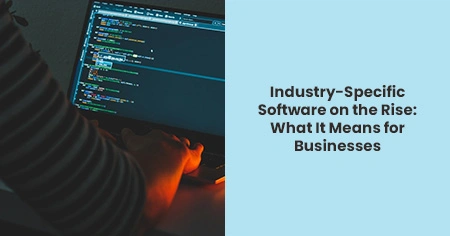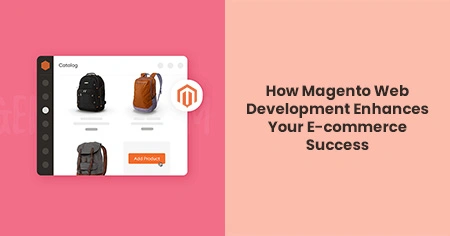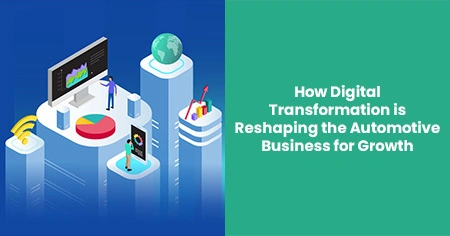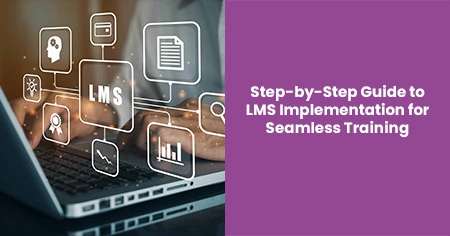Technology, then flipped the script. Businesses adopted software solutions for task automation and efficiency. This resulted in streamlined processes.
Initially, the majority of businesses turned to segmented software built for general use. While these tools provided value, they were not specialized. Not every industry was suited to a one-size-fits-all approach.
That is when software specific to the industry started to come out. This led developers to build custom solutions specific to each sector. These new technologies have revolutionized the way businesses operate, allowing them to become more efficient and competitive.
Do you want to know the real impact of industry-specific software on business? Keep reading to find out.
The Growing Demand for Industry-Specific Software
For example, in the field of athletics, gym owners and instructors are increasingly turning to tailored solutions that help with class scheduling, payment processing, and student performance tracking. For gymnastics studios specifically, tools like the Studio Director’s software offer integrated features to efficiently run classes, manage enrollments, organize tuition billing, and provide seamless communication with students’ families. This level of specialization supports both day-to-day management tasks and long-term student engagement.
General software has its limits. It offers simple features but is often short on what some industries require. A retail company, for instance, may need inventory management software, while a hospital might need electronic health records.
Healthcare, finance, retail, and construction: these industries need specialized tools to function effectively. These companies face certain challenges that can only be solved by customized software.
Now, thanks to technological advancements, bespoke industry-specific software is more accessible and affordable. Cloud computing, artificial intelligence, and automation have made customized solutions more implementable and scalable. Companies that implement these solutions enjoy a distinct competitive advantage.
Industries Benefiting from Industry-Specific Software
Nonprofit Sector
The nonprofit industry requires specialized tools to manage donations, volunteers, and outreach campaigns effectively. Solutions like donor management systems automate fundraising, track contributions, and maintain compliance with reporting requirements through proper fund accounting practices. Modern nonprofit software also integrates volunteer coordination, event management, and impact measurement - all critical for organizations that need to maximize limited resources while demonstrating accountability to supporters.
Now that you know how industry-specific software is taking off, let’s look into the benefits it brings to different industries:
Healthcare
The healthcare sector relies heavily on specialized software to facilitate the efficient management of patient records, appointment schedules, and billing systems. Introduction Electronic Health Records (EHR) systems have revolutionized patient care through enhanced access, reduced errors, and efficient hospital operations.
Other areas of healthcare need bespoke solutions outside of hospitals. Hospice care agencies, for example, need software to maintain patient records, log medication administration, and schedule caregiver visits. This will guarantee that healthcare regulations are adhered to while improving patient care.
Additionally, software for hospice assists with billing, documentation, and reporting, which minimizes the administrative burden on healthcare providers. Furthermore, the software application also checks for drug allergy reactions by studying the medications entered by the clinicians. Next, it enables smooth communication and collaboration among caregivers, nurses, and family members, resulting in patients receiving the best care possible.
These tailored solutions are designed to optimize operational processes, streamline communication, and facilitate workflow management for industry players. Thus, healthcare workers can dedicate more time to patient well-being and less to fulfilling administrative duties.
Retail and E-commerce
Retail and e-commerce enterprises have special business requirements, hence the need for specialized software. Retail is unlike other industries because it serves diverse consumers whose demands change constantly. Companies must effectively manage inventory, monitor sales, and improve customer experiences. This is where industry-specific software can help.
Inventory management systems track stock in real time, so stock shortages and overstocking are avoided. AI-driven software forecasts demand optimizes supply chains, and enhances product listings. E-commerce platforms use automated tools for marketing to give customer-specific recommendations.
They improve user experience drive conversions, and sales. Dedicated software for retail enables seamless transactions, efficient logistics, and improved inventory control, ensuring businesses remain competitive in a dynamic market.
Finance and Banking
Institutions that are evolved in high-risk environments like banks need to work with top-of-the-line security and efficiency during transactions. As digital transactions continue to rise, banks and other financial services are forced to rely on advanced software to navigate fraud detection, payment processing, and risk management.
FinTech solutions have transformed the business landscape with technologies such as real-time fund transfer, AI-driven fraud detection, and digital payment alternatives.
More than security, compliance is a major concern. Financial institutions are highly regulated when it comes to data management, as they can face legal consequences for failing to protect customer information. Specific software supports the compliance of processes with industry standards, allowing efficient reporting and increased transparency.
If they do not use the right tool, the financial organizations may face penalties, security breaches, and loss of business. On the other hand, institutions that use one operate with confidence while providing a better service to their customers.
Construction and Real Estate
The construction industry has specific requirements that go beyond just planning a project. All these processes need effective systems to manage labor, ensure safety compliance, track material costs, and coordinate a diverse group of stakeholders.
Construction-specific project management software allows companies to effectively plan, budget, and execute projects. It measures progress, tracks costs, and verifies that labor and materials are used cost-effectively. This eliminates delays and cost overruns, resulting in faster and more predictable project completion.
Realtors have to juggle client relationships, organize property listings, and monitor market trends. An average CRM system won’t provide the specific features essential for real estate professionals. This is where industry-specific CRM software is key. Similarly, businesses in other industries, such as landscaping, benefit from specialized solutions like landscaping business software, which helps manage client appointments, track project costs, and optimize resource allocation.
It features virtual property tours, automated contract management, and AI-driven market analysis. These tools make it possible for realtors to close deals faster and provide better customer service while streamlining business operations.
Manufacturing and Logistics
Industries such as manufacturing and logistics function on strict timelines that mandate precision and efficiency. Production line management, raw materials tracking, and on-time delivery are daunting tasks.
Manufacturers are leveraging supply chain management software to streamline operations by minimizing waste, optimizing production schedules, and keeping accurate inventory levels. This means that raw materials are produced on time and without unnecessary downtime.
Logistics service providers also depend on high-end technology to monitor shipments and efficiently manage warehouse stock. IoT-based solutions offer real-time monitoring of supply chain processes, enabling businesses to track the movement of their goods, automate inventory updates, and even predict delays.
Automated ordering systems also make logistics easier because they make sure that warehouses never run out of stock. These software solutions streamline operations, increase customer satisfaction, and decrease costs. Using industry-specific tools, manufacturing , and logistics companies can work with a much smoother, stable workflow.
Key Benefits of Industry-Specific Software
Now that we know how industrial software is transforming various sectors let’s go over its main advantages.
Increased Efficiency and Productivity
Industry-specialized software is indispensable for optimizing efficiency and minimizing manual tasks and errors through automatization.
Unlike generic solutions, these tools cater to individual industries' distinctive needs, resulting in smoother and effective functioning.
For instance, delivery efficiency in the logistics sector has improved thanks to real-time fleet management software. Rather than tracking vehicles and making predictions about delivery time through guesswork, companies rely on GPS-enabled software to track vehicle locations, anticipate delivery times, and reroute vehicles according to traffic conditions.
In addition to cutting fuel expenses, it enables on-time deliveries that minimize customer complaints and enhance overall logistics organization.
Industry-specific automation strengthens daily operations, decreases inefficiency, and re-assigns resource utilization per process, improving productivity and scale.
Cost Savings and Better Resource Allocation
Specialized software allows businesses to reduce unnecessary overhead and energy costs by reducing their redundant processes. These businesses do not need another general delivery tool that will not meet their needs.
Logistics companies using integrated tracking systems, for example, can find optimal delivery routes, reduce fuel costs, and utilize fleet vehicles more efficiently.
Likewise, restaurants employ intelligent ordering systems in an effort to reduce food waste and better adjust supplier expenses. By using software tailored to their industry, businesses can use resources more effectively and help their bottom line.
Enhanced Compliance and Security
Every industry has its own set of regulations and rules that it must adhere to or face legal repercussions. Industry-specific software can help ensure compliance right out of the box with built-in security features. For example, in finance, compliance tools ensure that companies comply with anti-money laundering legislation and avoid illegal transactions.
Let us consider HIPAA-compliant EHR systems in healthcare, which safeguard patient records and limit the likelihood of data breaches. Likewise, payment security software is the solution retail businesses implement to protect customer transactions against cyber threats.
This gives businesses the stability and compliance required to get going.
Better Customer Experience
Industry-specific software enables businesses to provide personalized services, resulting in higher customer satisfaction. Real estate agencies can benefit from CRM tools by automating the follow-up process with clients, ensuring timely responses, and efficiently managing property listings.
E-commerce platforms utilize AI-powered algorithms to suggest products based on a customer’s browsing history, increasing sales and customer satisfaction. Hotels leverage reservation management software to deliver memorable guest experiences by providing smooth check-ins and tailored service.
If used, the right software can help businesses to be closer to their customers and connect to them with better customer loyalty. Basically, it is much more than just a tool. By selecting customized solutions for your industry, you can better build a rewarding business that is competitive in your field.
The Future of Industry-Specific Software
Industry-specific software is at the cutting edge of this transformation, and technology is changing rapidly. Fortunately, there are various other things that can help in improving industry-specific software:
Artificial Intelligence( AI) and Machine Learning( ML)
Software is becoming smarter and more adaptive with AI. (One example is AI in healthcare, where it helps doctors diagnose diseases more quickly and accurately.) In retail, AI predicts customer behavior to inform businesses about effective marketing strategies. With incessant advancements in AI, businesses will use automation more and more for better decision-making, improved efficiency, and cost savings.
Cloud-Based Solutions and Accessibility
The world we live in today has changed immensely through the changes in technology. Cloud-based software does not require expensive infrastructure — it allows companies to store information securely and access it from any computer. This is good, especially for global companies and remote teams. And because cloud solutions provide seamless collaboration capabilities, they will be an essential investment in future growth.
Hyper-Personalization and Data-Driven Insights
Data is at the center of future software solutions. Online retailers use AI-driven analytics to monitor buying behavior and make relevant product recommendations. Big data is used in financial institutions to identify patterns in fraud and reduce risks. Industry-specific software of the future will harness ever more hyper-personalization capabilities to provide companies with insight that keeps customers engaged and happy.
With technology transforming various sectors, organizations must keep pace with the latest developments by investing in software solutions that fit their industry.
Conclusion
Industry-specific software is no longer optional — it’s essential. The ability to customize solutions makes businesses efficient, saves money, and helps provide better customer experiences. From healthcare to finance, companies leverage software built specifically for them.








